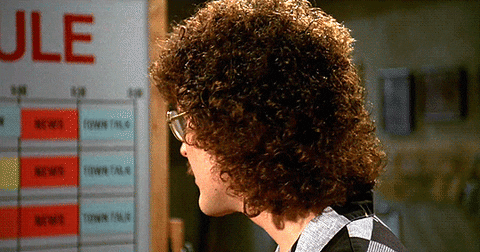A recent ebay listing has the scientific community up in arms—especially those involved in natural history.
The owner of the juvenile Tyrannosaurus rex specimen that has been on display at the University of Kansas' Natural History Museum, one Alan Dietrich, has decided to list it on eBay for just under $3 million!
The 15 foot fossil was found in Montana's Hell Creek Formation, and is estimated to be 68-million-years-old.
The University of Kansas issued a statement on Twitter that they have nothing to do with the sale. They have even gone so far as to condemn the attempt to sell the specimen.
The Society of Vertebrate Paleontology (SVP)released an open letter to Dietrich expressing their upset at the listing as well.
SVP isn't only worried about the sale itself, but also by the implications of Dietrich having used the specimen's placement at the museum as a selling point.
"The Society of Vertebrate Paleontology (SVP) is concerned because the fossil, which represents a unique part of life's past, may be lost from the public trust, and because its owner used the specimen's scientific importance, including its exhibition status at KU, as part of his advertising strategy."
Others have commented on the importance of natural history museums, and their collections being available for public view and scientific study, in the past.
Paolo Viscardi, deputy keeper of natural history at London's Honiman Museum told The Guardian:
"It is this physical record that makes museum collections so valuable – you can't extract DNA from a photograph and you can't test a written description for pesticide residues, but a physical specimen can provide a wealth of unexpected information."
A 2004 paper by Suarez & Tsutsui titled "The Value of Museum Collections for Research and Society" said:
"Nothing will ever replace the taxonomic knowledge and training that museums provide; funding in this area should become a national priority. Otherwise, knowledge of this planet's biodiversity, and of all the potential benefits therein, will be lost."
The private sale of a supposedly one-of-a-kind specimen means that the specimen goes from displayed in a museum, with scientists and the general public having free access to observe and learn from it, to possibly sitting in a crate in a warehouse or in someone's private collection.
Twitter users weren't happy about the attempt to sell the T. rex either.
Everyone is better off when such a rare specimen is accessible to anyone who wants to study it, including the owner.







 @marshamolinari/Instagram
@marshamolinari/Instagram @orlandobloom/Instagram
@orlandobloom/Instagram @bloekaty/Instagram
@bloekaty/Instagram @kursatperry/Instagram
@kursatperry/Instagram @miamoretti/Instagram
@miamoretti/Instagram























 @BreakingNews4X/X
@BreakingNews4X/X